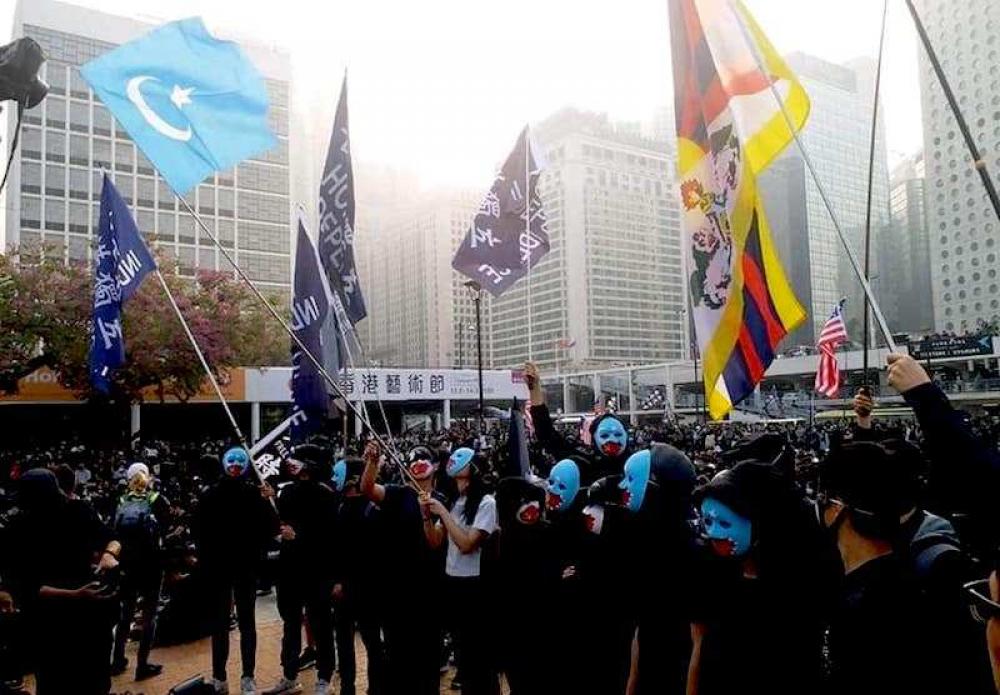Just Earth News | @justearthnews | 23 Mar 2021, 07:33 am Print
 RacialDiscrimination
RacialDiscrimination Image: Wikimedia Commons
New York: On the occasion of the United Nations (UN) International Day for the Elimination of Racial Discrimination, the World Uyghur Congress (WUC) reminded the world the need for urgent action to address the Uyghur genocide.
The decades of discriminatory policies introduced by successive Chinese governments, and the exclusion of Uyghurs from any meaningful participation in the political and economic processes in East Turkistan paved the way for the current genocide, read a WUC statement.
In the face of this crisis, the international community ought to share the responsibility to put an end to it, with concrete and meaningful actions.
“In light of the Uyghur genocide and China’s threat to the UN human rights mechanisms, the UN needs to step up and act in line with its self-pronounced core values”, WUC President Dolkun Isa said. “This includes the establishment of an independent Human Rights Council mechanism to assess and monitor the ongoing and egregious human rights violations in East Turkistan, as well as the appointment of a special rapporteur on China.”
Founded against the backdrop of the horrors of the Second World War and the Holocaust, the UN was established as the main intergovernmental organisation to prevent atrocities such as the Uyghur genocide from happening again.
In 1948, the international community formally recognised and codified the concept of human rights in the UN Declaration of Human Rights, promising to work together to create a world without violence, discrimination or genocide.
In August 2018, the UN Committee on the Elimination of Racial Discrimination (CERD) provided considerable exposure to the detention of ‘’at least one million Uyghurs’’ in detention camps and widespread rights violations. The CERD-review on the situation in East Turkistan marked a turning point in the recognition of the Uyghur crisis by the international community.
On November 24, the CERD sent a follow-up letter to China requesting comments and actions on several issues. The Committee reiterated its grave concern on the serious violations of human rights unfolding in East Turkistan, including the mass arbitrary detention of millions of Uyghurs and other Turkic peoples, family separation policies, the ban of Uyghur language as a medium of teaching in certain areas, heavy surveillance, denial of passports and the fate of Uyghur refugees and asylum seekers.
This confirms the urgency of the situation, as the response of the Chinese government to the recommendations of CERD in 2018 proved to be ‘’unsatisfactory’’ to the Committee.
Although the results are a testament to the persistent work of civil society in the lead-up to the review from a number of NGOs and their sustained work with the Committee, it is critical that we seize on the response to further galvanise pressure against these policies.
Just recently, at the 46th Human Rights Council, many States have reiterated their grave concerns regarding the human rights violations occurring in East Turkistan, including sexual violence in camps, arbitrary detention, forced labour and forced sterilisation.
The United States explicitly acknowledged that ‘’crimes against humanity and genocide’’ were taking place in East Turkistan. Indeed, recent independent reports have confirmed that China’s actions constitute genocide and crimes against humanity, as defined in the UN Convention on the Prevention and Punishment of the Crime of Genocide.
Besides the need for concerted action from the UN, it is also up to individual Member States to act upon their commitments to defend human rights, as they are the ones ultimately responsible for the UN’s course of action.
- Viral Irish food bank photo sparks shocking racist attacks on Indians
- Caught on camera: Two foreigners assaulted in Israel in an alleged racial attack
- Pakistan: Parents heartbroken after court sides with man accused of kidnapping minor Christian girl
- Pakistan: Trafficked 35 years ago, Bangladesh-born woman approaches court against FIA for offloading her from flight!
- Hindu tea worker found bound and bloodied in Bangladesh garden during general elections; investigation underway





-1763561110.jpg)
